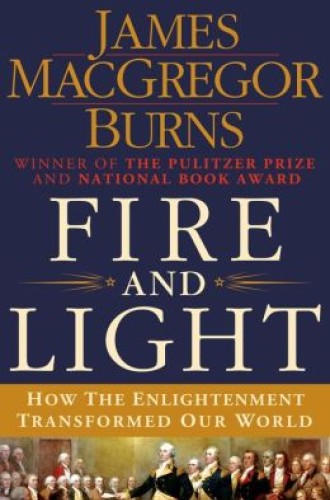Fire and Light, by James MacGregor Burns
James MacGregor Burns received a Pulitzer Prize for Roosevelt: The Soldier of Freedom way back in 1971. Now, at the fine age of 95, he has authored an eminently readable history of that elusive historical movement we call the Enlightenment.
The Enlightenment did indeed transform our world, as the title of Burns’s new book suggests, but its ideas were often contradictory. Thomas Hobbes held that humans are driven by “the restelesse desire of Power after power” and that life in the state of nature is “solitary, poore, nasty, brutish and short.” Only the binding compact of the Leviathan state can relieve this gloomy prospect, he said. In contrast, the Scottish sage Francis Hutcheson celebrated the natural benevolence of humankind, positing a sociability prior to the state. And then there is Descartes, a supreme rationalist in Burns’s Enlightenment pantheon, and David Hume, a consummate empiricist who disdained the abstractions of the French mathematical savant.
Although Enlightenment philosophy is contradictory, its slogans are consistent: “Freedom” and “Reason.” Freedom from authority starts with liberation from the religious mindset of the Middle Ages. Burns begins his story with Luther, who freed Europe from authoritarian orthodoxy but doesn’t quite make it as a figure of the Enlightenment; after all, he called reason “the Devil’s greatest whore.” Appeal to sola scriptura may have undermined the pope, but the wars of religion that accompanied the Reformation convinced philosophers that the Bible was not a guide to peace and political stability. Authority needed to be replaced by reason because freedom may be fire, but reason is light.






